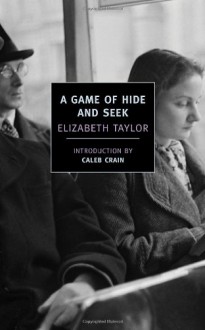Thinking through the Excellent Women read, and why I enjoyed it so much, solidified a realization that has been simmering under the surface of my reading for a while. I love fiction that focuses on the domestic details of the lives of the characters. I think that this is one of the reasons that I prefer books by women.
So, while I, sometimes, enjoy books that tackle weighty subjects of politics and public policy and very very important people doing very very important things, I generally prefer smaller tales - instead of focusing on big questions, I enjoy books that focus on small questions, but in the context of a culture that shows the big questions.
In the case of Excellent Women, Pym has given us a very tiny story about Mildred Lathbury, a completely unexceptional woman. There are hundreds of thousands of unexceptional Mildreds (both married and unmarried) alive at any given time. She isn't affecting policy, she isn't changing the world in remarkable ways - her impact is on a small circle of individuals. But, by focusing on Mildred, Barbara Pym is equally showing us a lot about the greater world. She has much to say about male entitlement, and majority privilege, and how the world treats unimportant, unexceptional women and, conversely, how even the most unimportant, unexceptional man is more important that pretty much all of the women.
And by doing that, she denies that Mildred is unimportant and unexceptional, and she makes the reader realize that small, domestic concerns are, really, the most important concerns there are. That making a cup of tea, using the nice tea pot, buying the better quality biscuits, are small things, but they really impact the character's life. And, she also conveys, that service to others, even where that service is nothing more than kindness and a willingness to allow them into your home for a few moments is what makes life seem real.
Allowing women to narrate their lives in fiction, even when their lives seem terribly circumscribed, is, in many ways, a revolutionary act. It lets the reader know that women are human beings, and that the aspects of their lives of which they are in charge are successful. That they have desires and dreams that can sometime be satisfied through domesticity, and sometimes not.
I'm not sure that I'm explaining this very well, but I think that this is also one of the reasons that I enjoy Agatha Christie's mysteries so much. We mostly use the phrase "world building" to refer to fantasy fiction, where the author is creating a world out of whole cloth. But Agatha Christie also "world-builds," only her world is a world where the unseen currents in a family or household are constantly erupting into murder. Her details of households, and roles, and relationships, and who pours the tea, and who made the paste sandwiches, and whether or not the roses by the doorstep have thorns are what makes her mysteries, to me, so satisfying to read.
Rarely do we have murders that have a broader impact on society in Christie's mysteries - and the ones that do are generally her less successful "thriller" style mysteries. She is at her best when she is focused on the small things, but this focus on the small things still leads us to larger conclusions about the society in which she was writing. Rather than telling us that patriarchs have all the power - she shows us how that aspect of British society erupts into patricide. Rather than tell us how disempowered wives were ignored and mistreated by their philandering husbands and the community that enabled his behavior, she shows us that same wife's emotional devolution into murder. Her puzzles not only give us clues to murder, they gives us clues to the way that society worked then, and still, in many cases, works now.
This goes back, I guess, to Jane Austen's quote, which in a sense dismisses the importance of her own work:
“the little bit (two Inches wide) of Ivory on which I work with so fine a Brush, as produces little effect after much labour.”
And yet, we still read her, and her books, narrow and domestic though they are, are one of the time machines that we can use to understand the society in which she wrote, and particularly the lives of women.
If you've made it this far in the post, thanks for sticking with my meanderings!


 Log in with Facebook
Log in with Facebook 








